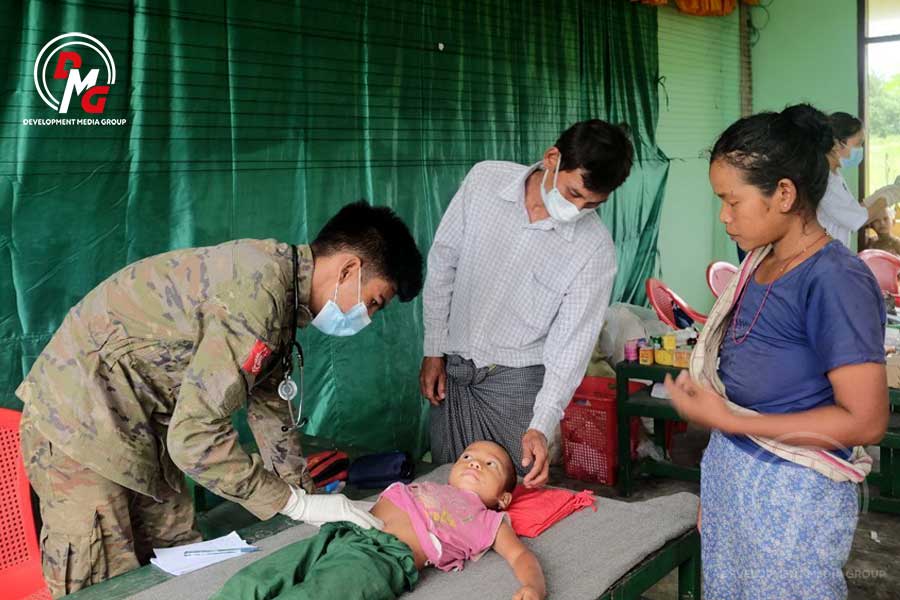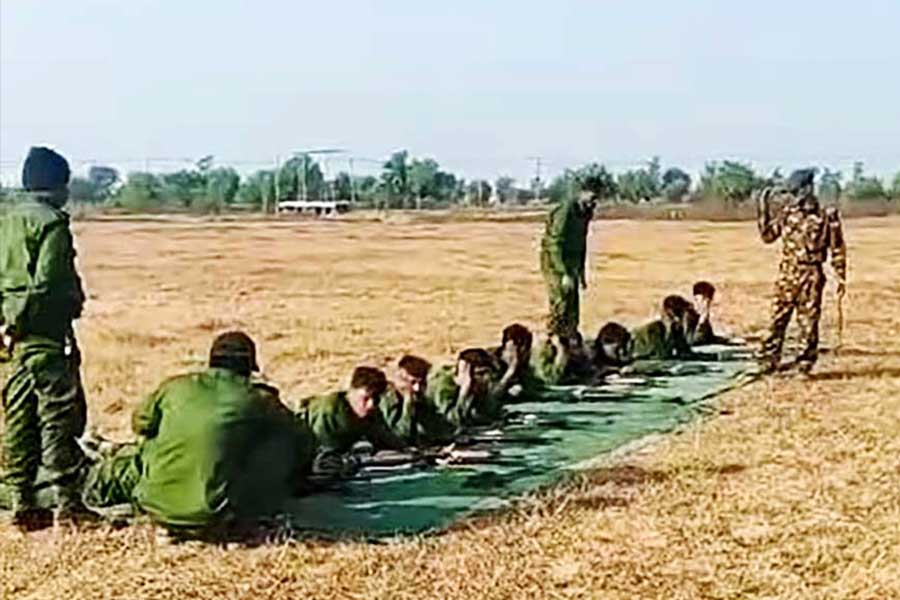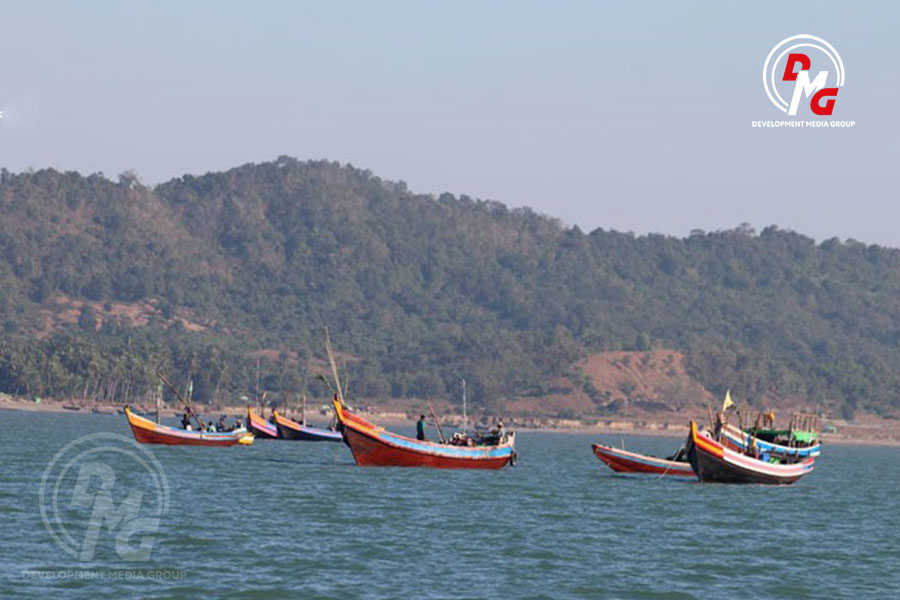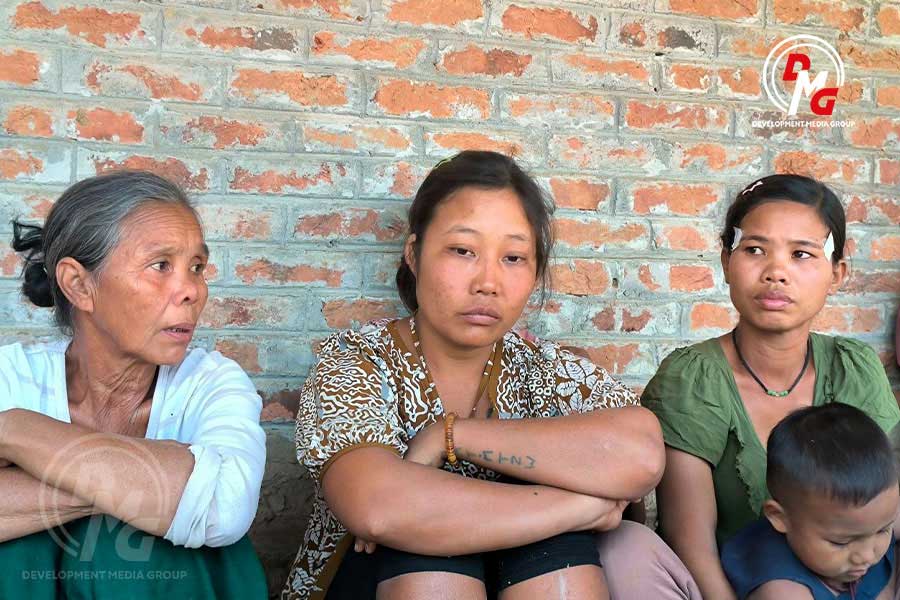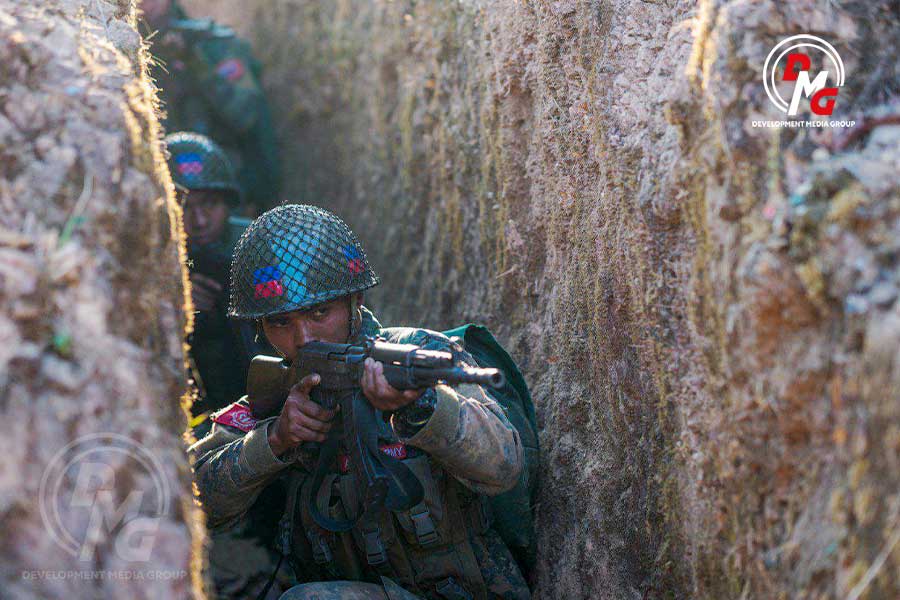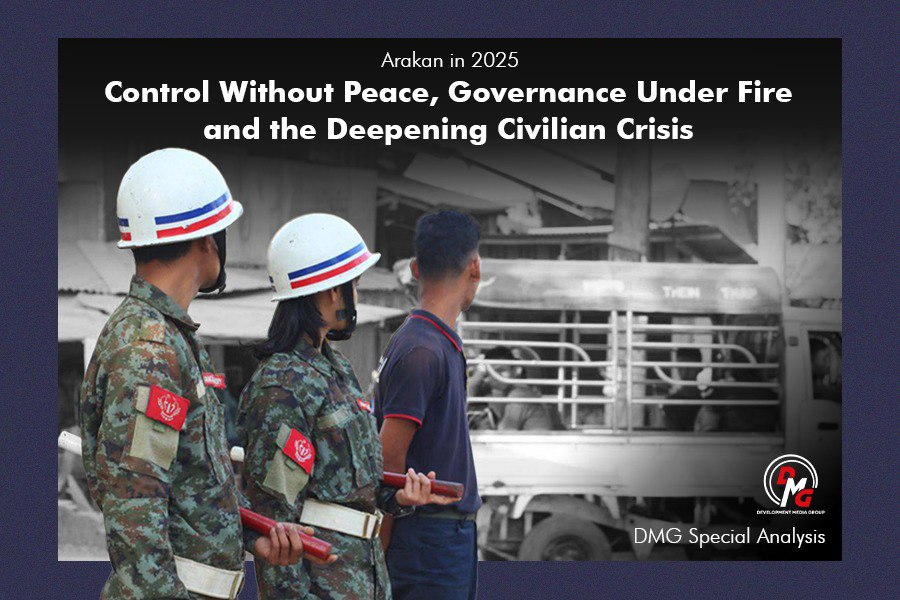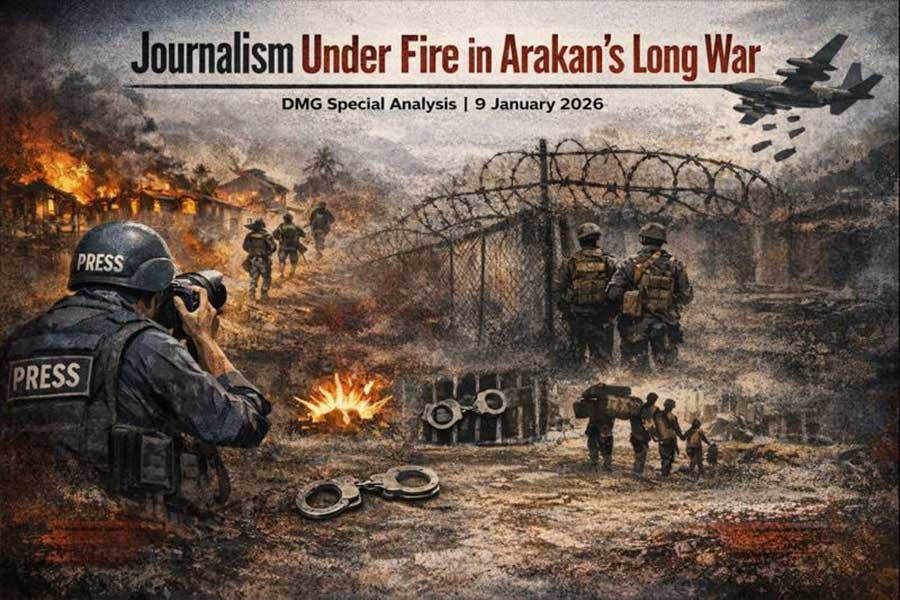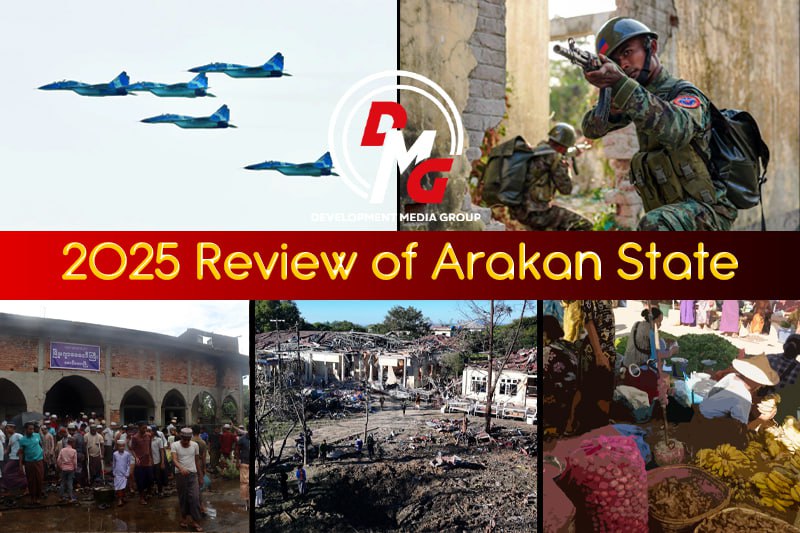- Children in Arakan State face rising cases of pneumonia and flu
- Muslim militiamen flee junta camps in Sittwe amid oppression, discrimination
- Junta navy activities halt fishing in Thandwe
- Junta airstrike kills 21 POWs, family members at Kyauktaw detention centre
- Arakan Army seeks to expand territorial control in Sittwe
Amid provocations, friendly football and local initiatives offer counternarrative on Arakanese-Muslim relations
An interfaith football tournament that began last month and concluded on New Year’s Day is being touted as proof-positive that Arakan State’s diverse ethnic and religious communities can live together in harmony, and enjoy a bit of friendly sporting competition too.
31 Jan 2022
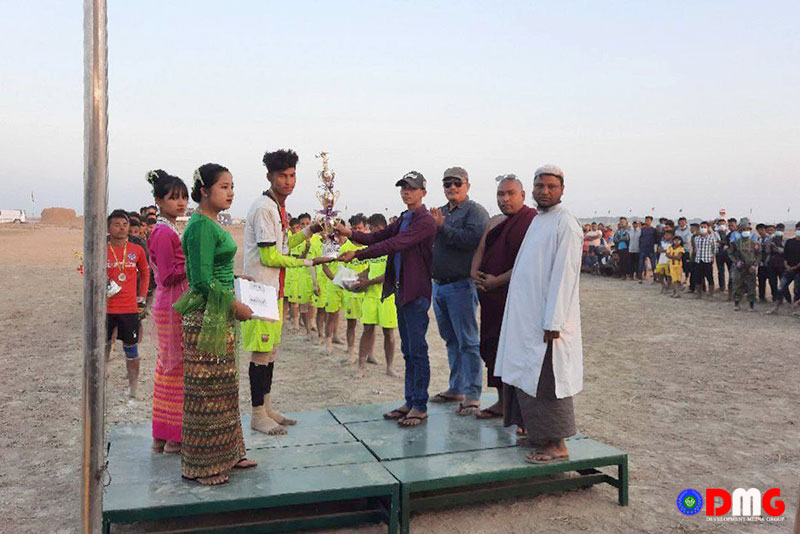
DMG Newsroom
An interfaith football tournament that began last month and concluded on New Year’s Day is being touted as proof-positive that Arakan State’s diverse ethnic and religious communities can live together in harmony, and enjoy a bit of friendly sporting competition too.
The football tournament was organised by the United League of Arakan (ULA) in Bo Min village, Kyauktaw Township, from December 19 to January 1, with 43 Arakanese teams, 14 Muslim squads, two Mro teams and one Khami club participating, according to the township’s Muslim Affairs Committee.
Ko Zaw Min Tun, a Muslim student, said the football competition showed that the Arakanese and Muslim communities want to coexist peacefully, not in conflict.
“It is as if a potential problem in Arakan State was prevented. This football competition shows that we do not support the destructive efforts of some people. It also shows that we will strive for harmony,” he said.
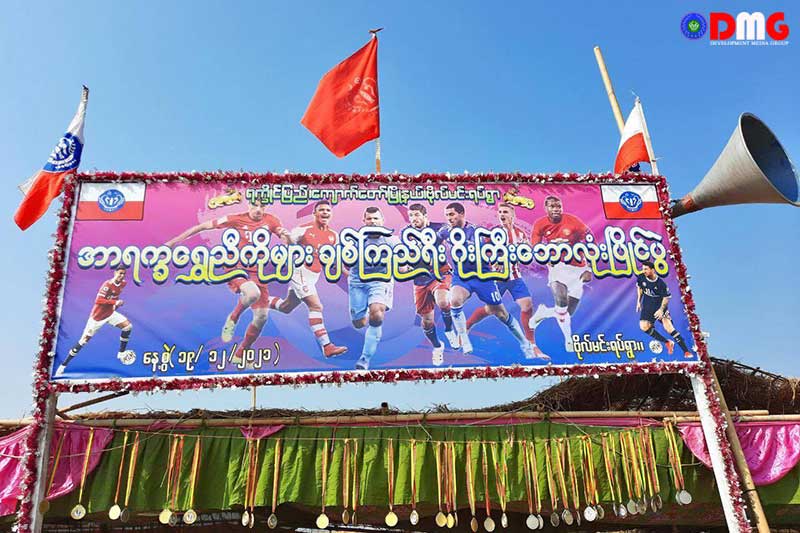
Marjit, a member of the township’s Muslim Affairs Committee, said he was pleased to see that Arakanese Buddhists and Muslims were given equal seats at the football competition in Kyauktaw Township.
“The ULA pays close attention to Muslim clerics. I think this will further improve Arakanese-Muslim relations,” he added.
The Kyauktaw Township Committee for Muslim Affairs was set up by the ULA to give Muslims the opportunity to decide for themselves how to address problems that arise in local Muslim villages.
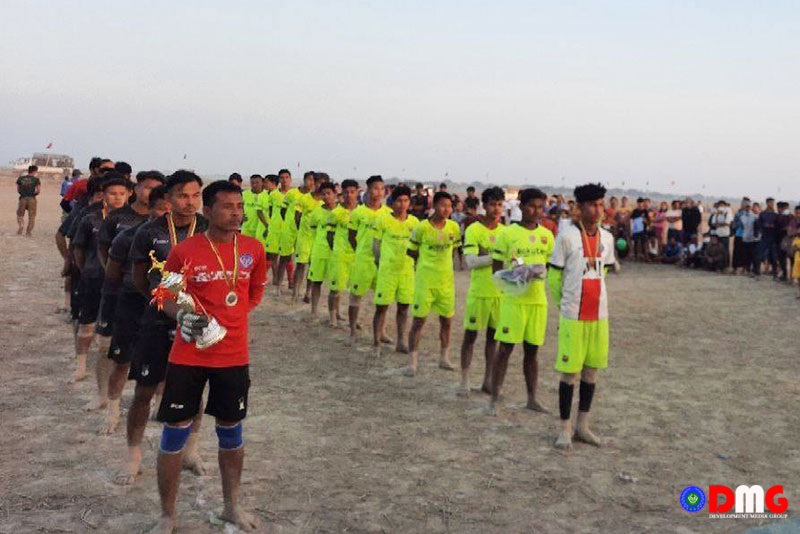
In a statement on December 17, the ULA — the Arakan Army’s political wing — said that some townships in Arakan State had recently experienced a “series of extraordinary events” that it warned could lead to sectarian strife.
Following the ULA statement, some cows were stabbed in Mrauk-U Township and bundles of paddy owned by two Muslims were set on fire in Buthidaung Township. In addition, an employee from the local General Administration Department was killed in Maungdaw Township.
Muhammad Shahmad, a member of the Kyauktaw Township Muslim Affairs Committee, said that ULA-led efforts were being made in Muslim villages to prevent conflicts and address potential provocations.
“We don’t want conflict. I just want the situation in Kyauktaw Township to allow for freedom of travel in Arakan State,” he said.
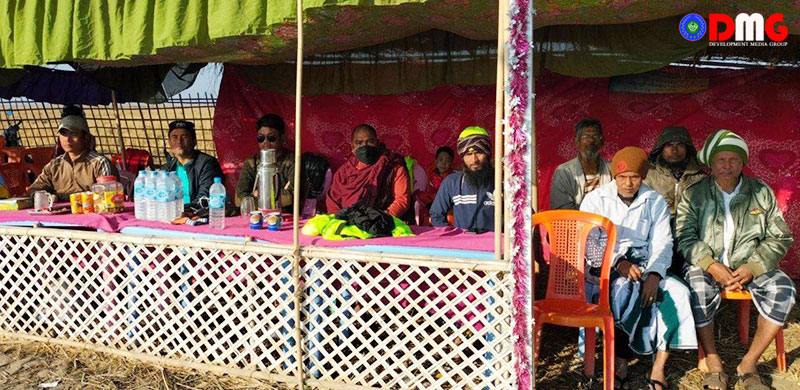
The Arakan Student’s Union, a group of Muslim students and the Arakan Students’ Union (Universities – Yangon) issued a joint statement on December 23 condemning the series of suspected crimes in Arakan State as acts of sabotage intended to divide the state’s people.
Relations between Arakanese and Muslims were strained by intercommunal conflict in Arakan State in 2012 and 2017, acknowledged U Tun Thar Sein, a former Arakan State lawmaker. But relations between the two communities have improved since the Arakan Army assumed many of the administrative and judicial functions in Arakan State, he added.
“After the ULA/AA took control, relations between Muslims and Arakanese people have improved quite a bit. In the past, Muslims did not enter or leave Arakanese villages. Now, Muslims are moving in and out of some Arakanese villages. Some Muslims also sell their produce at markets,” he said.
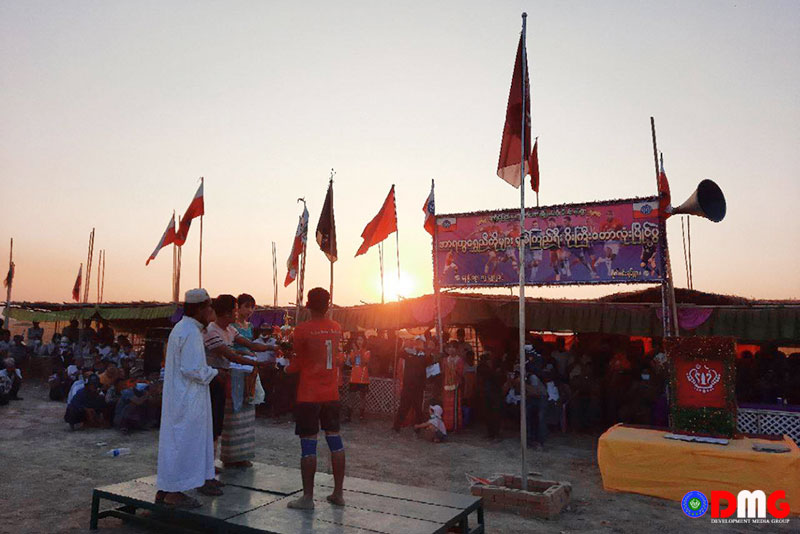
Muslims in Arakan State are also being invited to join ULA/AA administrative and law enforcement initiatives, AA chief Major-General Twan Mrat Naing said in an interview with Arakkha Media last year.
“We’ve planned for them [Muslims] to participate more in our administrative sectors and police work, and also plan to offer training for them on office work, management and law,” he said. “We’ll have to conduct this step by step.”




